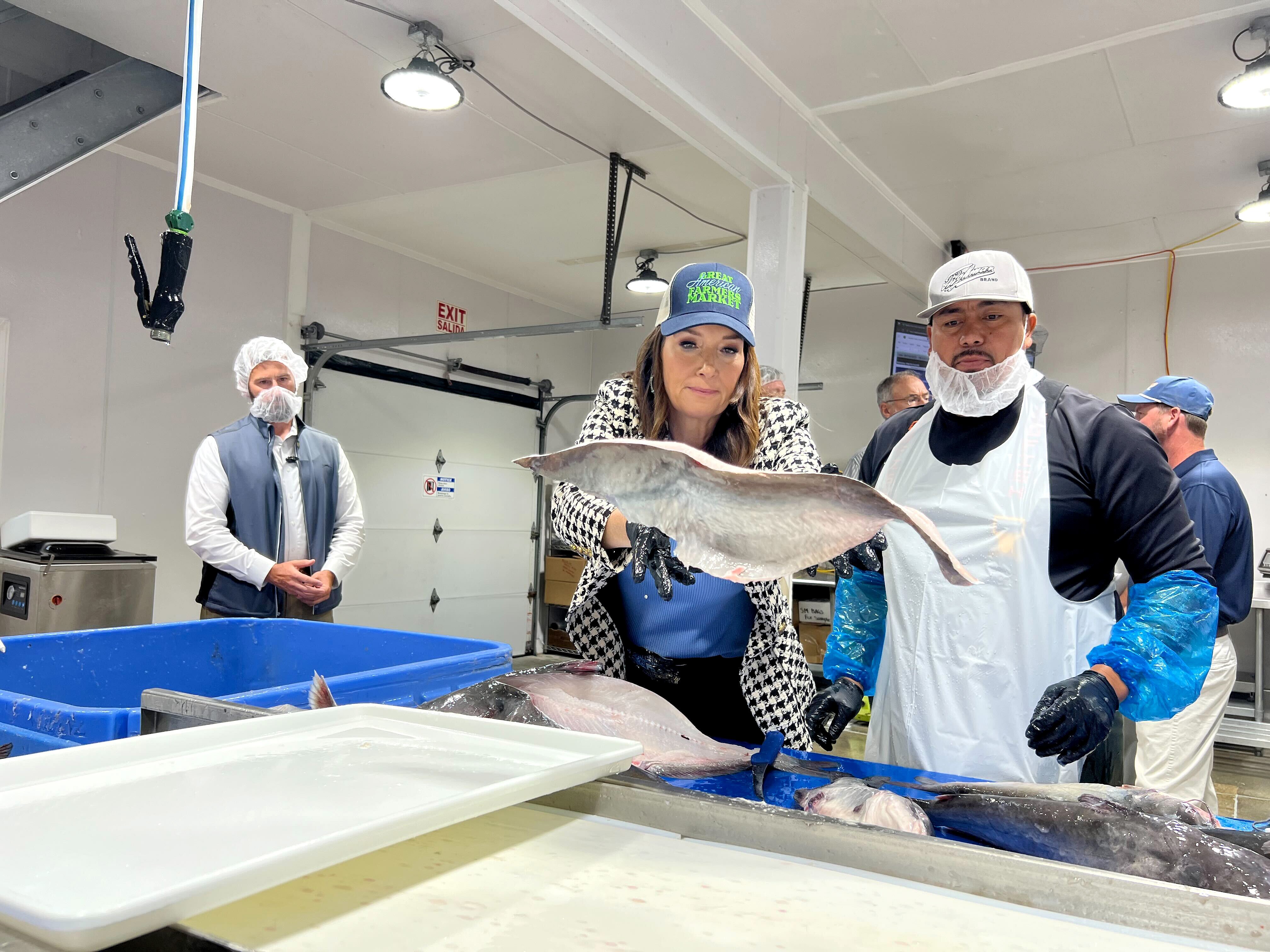CURRENT EDITION: baltimore (none)🔄 Loading BlueConic...EDITION HISTORY: No changes tracked
🔵 BlueConic: ___🔗 Query: ___✏️ Composer: ___
Fixing Baltimore’s sewage overflows could drain $674M, 20 more years
The city entered its sewage consent decree in 2002 and now wants to punt its completion to 2046.
Thousands of dead fish flood the Baltimore harbor, again
Though regulators say the incident isn’t the result of any single pollution event, the aquatic annihilation is another reminder of the challenges facing the harbor and the broader Chesapeake Bay.
The crown jewel of American farm science is in Beltsville. Will Trump close it forever?
The Trump administration plans to close the Maryland's Beltsville Agricultural Research Center, or BARC, just outside Washington. The USDA wants to move the farm research “closer to the people,” but proponents of the lab worry about disruption to ongoing research and development of the rural land.
Is offshore wind doomed in Maryland?
The Baltimore-based US Wind project off Ocean City is Maryland’s only offshore wind farm close to construction, but federal tax breaks and courtroom battles may decide its fate.
Cause of fire at wastewater treatment plant in Dundalk under investigation
Baltimore County officials are investigating the cause of a fire Monday night at the Back River Wastewater Treatment Plant.
Review of contested transmission line will stretch to 2027, past grid operator deadline
This marks a significant delay to the timeline requested by PSEG, which had proposed a final decision by the end of March 2026.
A ‘windscreen’ to shield South Baltimore from coal dust? Both CSX and the community say no.
New requirements to protect South Baltimore residents from an export terminal’s coal dust have left both environmentalists and the facility operator unhappy.
As heat kills more Marylanders, air conditioning is a right for some but not for all
But as summers grow hotter and longer, landlords across much of the rest of Maryland are under no obligation to cool buildings.
Trump administration plans to revoke permit for Maryland offshore wind farm
The Trump administration has taken aggressive steps to curtail the offshore wind industry nationally.
Cool weather triggers die-off of crabs and fish in Canton area
Along the Canton waterfront Friday morning, a few hundred oxygen-starved crabs and fish bobbed to the surface.
Heat death toll climbs to 29, Maryland’s deadliest summer since 2012
High heat in Maryland has killed more people so far this year than in all of 2024.
Elimination of EPA solar program to cost Maryland more than $60 million
The Trump administration’s decision this week to ax a Biden-era rooftop solar program will cost Maryland more than $60 million intended to build the local workforce and lower electricity costs for thousands of households.
On Tilghman Island, USDA announces $6M to stem blue catfish invasion of Chesapeake
Tilghman Island Seafood does its part to cull the blue catfish, but the region lost control of the population years ago.
An inspector cleared 1,500 homes of lead paint risk. Maryland says: Wrong.
An inspection had illegally cleared their home of risks of toxic lead paint, residents learned in the letters.
Maryland will require giant ‘windscreen’ to shield South Baltimore from CSX coal dust
Maryland environmental regulators to impose new restrictions on a coal export terminal in South Baltimore, blocking CSX dust from polluting neighborhoods.
In Baltimore’s hottest new race, ‘experience the suffering of the world we’ve created’
The unsanctioned footrace loops along a particularly scorched stretch of North Baltimore.
Sport fishing could help cure the Chesapeake’s catfish problem, but anglers need to bite
One scientist hopes his Eastern Shore fishing derby boosts the fish fight.
Maryland to EPA: Our offshore wind permit is just fine, thank you
In a letter sent to the U.S. Environmental Protection Agency, Maryland says the state won’t make the correction requested and doesn’t plan to reissue a permit.
After FEMA axed aid, is an Eastern Shore town lost to the bay?
If the water overtakes Crisfield, some may stay. But many more wonder: Is a community that experiences costly floods every day still a community?
Baltimore’s Harbor Splash canceled after overnight showers
A second attempt at an organized Baltimore harbor swim this summer was called off due to persistent rains, and organizers don’t plan on trying again this summer.










